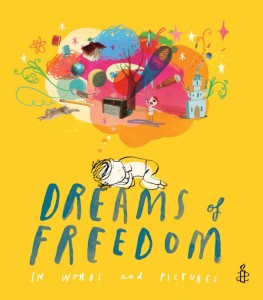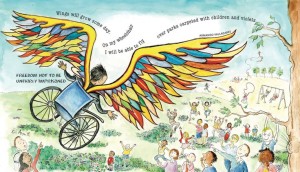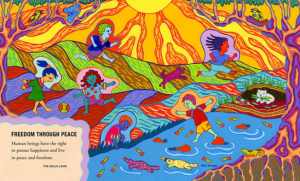One of the key moments in my childhood was reading a book about Harriet Tubman and realizing the horrible truth about slavery: that people were owned, that people were abused, that people couldn’t escape unless they were willing to risk death. That early reading led me to my focus on oppression and liberation as a writer. As an adult, I’ve spent my life looking at issues of liberation around the world, particularly liberation movements in Africa as previously colonized nations attempted to free themselves from oppression and foreign rule. Freedom is an important concept to me. But what does it mean? What does freedom actually look like? What are people willing to risk for freedom? What are people willing to do to prevent others from gaining freedom? And most of all, in my current country of America, in 2015, are we actually free?
One of my favorite writers of all time, L.M. Montgomery, once claimed through a character (Uncle Jimmy in either Emily of New Moons or Emily Climbs, for those inclined to ask for specifics): No one with a thousand ancestors is free. He’s got a point. We are products of the things that come before us. As much as we Americans wish to proclaim ourselves unfettered by tradition or the morals and values of the past; as much as we want to explain the present without recourse to understanding the past; even so, the past haunts us because no one with a thousand ancestors is free.
OK. But what does that have to do with books for children? I’m always curious about different ideas about freedom and liberation. And I want to present those to my child. Do we have a collective sense of what freedom is? Do we have a unified understanding of freedoms we find important, even if we lack the ability to enforce those freedoms in the current present?
Here, in a picture book for children, are collected quotations from a variety of important historic and modern figures on what personal, political, and collective freedom looks like to them. Each page includes a different quotation from people like Anne Frank or Nelson Mandela, along with an illustration from a different celebrated artist, such as Peter Sis. Both quotations and illustrations are finely wrought, a great introduction to children of the variety of concepts of freedom and “rights” we all should have no matter our age. Beautiful and contemplative, a great addition to any personal, public, or school library!
The back matter includes biographies of the people quoted and the illustrators. I only wish they’d included a stronger sense of dates and provided more historic background.


